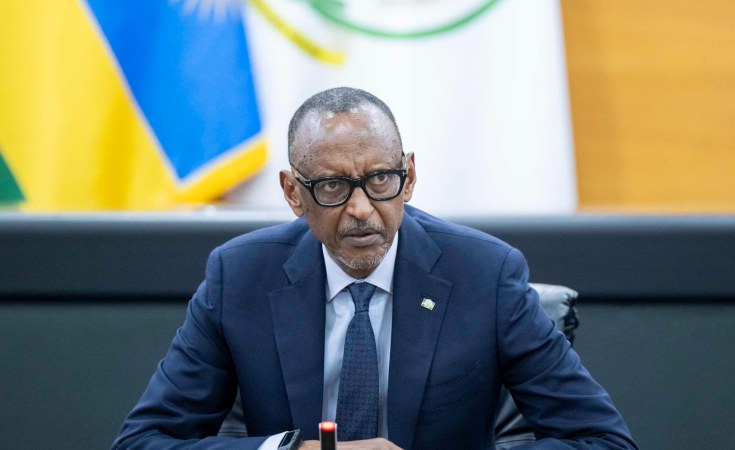Kigali — Rwandan President Paul Kagame wrapped up his reelection campaign Saturday, two days before voting takes place on Monday. The incumbent faces two opponents who say he has overstayed. Kagame tells reporters that his supporters want him to run for another term.
At a news conference following his last campaign rally, Rwandan President Paul Kagame told reporters that his priorities for the country he's been leading since 2000 will not change.
"Priority No. 1 after we've gone through all of this is to continue to make as much progress as we can in the area of security and stability for our country, socio-economic development progress ... we are building our country, growing it toward prosperity," he said.
This will be his fourth term if he wins reelection next week. Kagame faces two other candidates including the Democratic Green Party's Frank Habineza, who ran against him in 2017 and says the president has stayed around for way too long. Habineza told VOA he's successfully campaigned in most of the 30 districts across the country recently, and voters have been more enthusiastic this time around.
"I am giving them hope that after 30 years, we really need to see a different way of living, different political programs, different thinking, and a different vision. We are not going to destroy the good things that have been done before, but we want to give them better hope and a better future," he said.
Kagame joked at the news conference that he never wanted to be president, saying that it was his party that insisted he get into the race in 2000. Decades later, his supporters tell him they want him to run for another term.
"Every day I am being asked when are you leaving, when are you going? These people who made me president are telling me they still want me to be president. Somebody else somewhere says no you are here too long. I really get confused. I think this is not fair," he said.
The 66-year-old leader is expected to cruise to an easy victory. One reason, according to critics, is that he has stifled dissent. But another, analysts say, is the way he's been able to guide the East African country toward internal peace since the 1994 genocide, when an estimated 800,000 Tutsis and moderate Hutus were killed by Hutu extremists.
Eric Ndushabandi is a political science and international relations professor at the University of Rwanda, and an associate researcher at the Louvain University in Brussels. He said Kagame's support has been there because of his efforts to address Rwandans' need for stability after the genocide.
"The language, practice and success around stabilization and security, mainly in internal politics, is joining the expectations and aspirations of many Rwandans after this tragic and historical background," he said.
Ndushabandi also said there is a big gap between the presidential candidates in terms of popularity, ideology, means, and capacity.
Other candidates were barred from the race by the National Electoral Commission for various reasons. One was a fierce Kagame critic, Diane Rwigara, who the commission said did not provide a criminal record statement and did not collect the minimum number of supporters' signatures.


